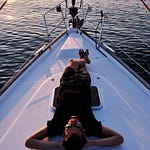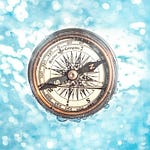
Missed the start? You can read the Prologue here:
PREVIOUSLY in Ocean: The Podcast Narrator Helen, a devoted but maverick teacher, pursues her mission to help her most troubling student Sindi, with life-changing results.
Episode Two: In which Helen is rescued by a stranger and attempts to come to terms with what has happened to her, starting with Romy, a somewhat disconcerting therapist.











